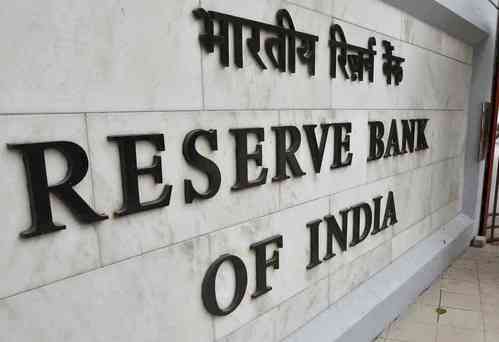RBI withdraws Rs 1 lakh crore from banking system through VRRR auction to tackle surplus liquidity
The Reserve Bank of India (RBI) on Friday withdrew Rs 1,00,010 crore from the banking system through a seven-day variable rate reverse repo (VRRR) auction.

Mumbai, July 4 (IANS) The Reserve Bank of India (RBI) on Friday withdrew Rs 1,00,010 crore from the banking system through a seven-day variable rate reverse repo (VRRR) auction.
The move is aimed at reducing the excess liquidity currently present in the banking system. According to a statement by the RBI, it received bids worth Rs 1,70,880 crore during the auction.
“Out of this, the central bank accepted Rs 1,00,010 crore at a cut-off rate of 5.47 percent,” the Central Bank said in its statement.
This step is expected to reduce the surplus liquidity and could lead to a rise in short-term overnight rates.
As per the RBI’s latest data, the banking system had a liquidity surplus of around Rs 4.04 lakh crore as of July 3.
Despite previous liquidity absorption efforts, the system remained in surplus, largely due to month-end government inflows such as salary and pension disbursements.
In addition, redemption of government bonds and coupon payments added further liquidity.
Just last week, the Reserve Bank had removed Rs 84,975 crore from the system through a similar VRRR auction.
However, the surplus remained high, prompting another round of liquidity tightening.
The RBI regularly conducts VRRR auctions to manage liquidity in the system and keep short-term interest rates aligned with its monetary policy stance.
Meanwhile, the Central Bank on Wednesday directed banks and financial institutions not to impose any pre-payment charges on floating rate loans and advances, including those taken by individuals and micro and small enterprises (MSEs) for business purposes.
These revised guidelines will apply to all loans sanctioned or renewed on or after January 1, 2026.
As per the existing rules, banks and non-banking financial companies (NBFCs) are already barred from charging foreclosure or pre-payment penalties on floating rate term loans taken by individuals for non-business purposes.
However, the latest directive marks a significant expansion, now extending the benefit to business-related loans as well.



 IANS
IANS 










